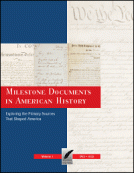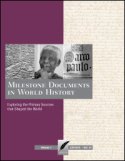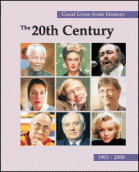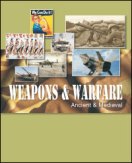What’s happening? The story of my Twitter evolution… and more...
What’s happening? The story of my Twitter evolution…by Cynthia Lambert A funny thing happened on the way to the weekend: I found myself on Twitter looking for stuff to do! Now don’t get me wrong–I have been on Twitter. I signed up about two years ago and have used it sporadically ever since. I like the short bursts, but they often are just links to typical stuff found elsewhere. Plus, my choices of who to follow were often disappointing. Not the real people I actually know! It was the content providers and entertainment choices I made that fell short. From the input side, I posted some. That was fun, especially the phase where I tried to make every post use as close to the total 140 characters as possible. Still, after posting to Facebook, I didn’t find I had anything new to say. Mostly, I glanced and moved on. That began to change when I was planning my vacation. I was heading to Northern California and some pretty tiny towns. I certainly used Google to plan and prep for the trip. However, I couldn’t get any real sense of the towns or what there was to do after hiking all day. At some point, I thought maybe I could follow a local library twitter feed and find out a few things happening while we were going to be in town. I dug about further and found a local paper, the local college, and a few government feeds for my destination. Boom, I finally found my Twitter sweet spot!! I found information about food, gardens, and shopping. I even found a yarn shop via a garden walk. Now folks, these are a few of my favorite things! I gleefully watched the feeds for a few weeks before we arrived. It was a great trip. After vacation, I returned home and reverted back to my Facebook and Google habits. For a few weeks that was just fine. However, one day I glanced at my Twitter feed just as @PrincetonScoop posted about an event for that weekend. The scales fell from my eyes and behold, I became a Twitter convert! Once again, I dug around for the local newspaper, the local university and colleges, the college radio station, and a few commercial PR providers. I added a few local places I frequent. I was on my way. A treasure trove of information began to flow in: Farm Market Updates; what’s blooming in the local gardens; summer theater options at Princeton University, and of course all the great events hosted @mylibrary. The moral of this story–always look at your resources and tools with fresh eyes. I thought I knew what Twitter had to offer, but I was wrong. What it is, and what I want from it, have evolved over time. I now visit Twitter before I hit Facebook. I still don’t post much, but that is because I am too busy planning what to do this weekend! • View comments • Track comments •
Officially Weighing in on QandANJPosted by: Janie Hermann Tomorrow afternoon at 1 pm the Reference Section of NJLA will hold a meeting at Princeton Public Library so that the library community can have a dialogue on QandANJ.org and on the state of virtual reference in New Jersey. I personally hope that the room will be packed to standing room only so that we can get as many opinions and ideas as possible. My fear is that attendance will be much smaller than it should be. I know that some will not be able to attend due to other work commitments, desk schedules, or travel distance (NJ is a pretty big state). If you are in that category, please take the time to share your thoughts with Michael Maziekien, the chair of the NJLA Reference Section, or leave comments in this post. If you are still hesitating about attending for other reasons — such as apathy or not wanting to “rock the boat”, so to speak — then I encourage you to reconsider and take the time to come tomorrow. The key issue with this entire kerfuffle is not the decision to end funding for QandANJ, but the manner in which it was done. A decision about a statewide initiative that is staffed by librarians from over 50 libraries was made without any input from the stakeholders. This our chance to rectify the situation and have our say. Until today my involvement with this issue since it surfaced about 5 weeks ago on April 4th has been to make several (some quite lengthy) comments based upon posts by Andy Woodworth and Pete Bromberg and to speak with other in our library community who are feeling the same sense of betrayal and shock over this decision. Pete and Andy have done an excellent job of framing the entire situation so I will not repeat what have they have said, but I did want to go officially on record as supporting their efforts to get the conversation started and not let the closure of a long-standing and beloved service be done without giving it a full and considered examination. Tomorrow is not a “Save QandANJ” rally. It is a chance for open dialogue in which we can take steps to decide the future of virtual reference service in our state. It may very well be that the time has come to sunset QandANJ and even those of us who have been most vocal about this issue recognize this reality. Or it may simply be time to retoool the service, find new a funding model and/or scale down the service to recognize that many libraries have their own VR service and no longer need to be a member of the project. The point is that we need to examine figures and facts, collect opinions from all sides both pro and con and then come to a consensus. This process won’t happen in one day or one meeting and I am very relieved that QandANJ has been given a reprieve to allow us time to figure this out. I am also grateful to the NJLA Reference Section for taking the initiative to get the conversation started by calling this meeting and to Pat Tumulty and the NJLA Executive Board for issuing a statement that began with this sentence:
I have long been an advocate of the NJ State Library and have served on several committees for them over the years, including the Blue Ribbon Panel on the Future of Libraries. I continue to be proud of the innovation that is sparked in the NJ library community with the leadership of our state library. The NJ State Library has led many successful marketing initiatives that have raised the profiles of libraries and shown our value to our stakeholders. My disagreeing about the manner in which this one decision was made does not mean that I am no longer an advocate for their work or any less proud of the innovative services they provide. It simply means that we do not see eye to eye on one issue. Some in the library community feel that those who are being vocal in their opinions are “betraying” the NJSL to openly call for a reversal of this decision and to request a meeting to discuss the future of the service. I do not see it as a “betrayal”. I see it as a way for all of us in NJ to grow as a professional community and am hopeful that the outcome will be a new way of doing business, one that is transparent and open and important decisions are given due consideration. This has been a divisive few weeks for many, of that there is no doubt and it was evident at the NJLA conference last week. I know it has been very upsetting for many people for a variety of reasons. Let’s put that all behind before 1 pm tomorrow and work together towards a solution. If you have yet to feel free to speak up about your feelings on this issue, please find your voice and give us your feedback. Your ideas count and can impact the future of service for all New Jersey residents. • View comments • Track comments •
National Library Legislative Day 2011 is Here!Posted by Robert J. Lackie Libraries are increasingly essential in these tough economic times. People are flocking to our nation’s libraries for job and career information, small business research and e-government services as well as support for formal and informal education and lifelong learning. Congress made across-the-board cuts to federal programs in its FY2011 budget, and libraries fill the gaps made when other agencies and services. Unfortunately, libraries are also receiving federal budget cuts.
APPROPRIATIONS FY2012
Elementary and Secondary Education Act (ESEA) (School Libraries):
While these issues are the most urgent at this time, there are many other critical pieces of legislation impacting libraries. For full list of key issues that will be discussed at National Library Legislative Day, click here. ALA has also drafted issue briefs on the following areas: Access, Appropriations for Libraries, Broadband & Telecommunications, Copyright, Elementary and Secondary Education Act, Government Services & Information, Surveillance & Privacy and the WILL Act Visit http://capwiz.com/ala/issues/alert/?alertid=44989511&queueid=[capwiz:queue_id] to learn more and send your congressman and senator a message. -Robert • View comments • Track comments •
Complimentary Downloads from Salem Press Concerning Osama bin Laden & TerrorismPosted by Robert J. Lackie In an RSS feed I received today, Peter W. Tobey at Salem Press (ptobey@salempress.come) wrote that they were now providing free articles or chapters from published Salem reference books dealing with Osama bin Laden and terrorism. After reviewing them tonight while working the Reference Desk at Rider University Libraries (and missing the awards ceremony at the NJLA 2011 Conference for the first time in years!), I agree that many may find these free, quality resources of interest combined with other current resources within our databases, especially in light of current events. Mr. Tobey writes:
By the way, these four reference book resources (PDFs) from 2008 and 2010, listed above, can also be downloaded from Salem Press’ Issues Today site, under the subheading: “May 3, 2011 – Osama bin Laden and the War on Terror” and are part of a new effort Salem is beginning where they will post free, relevant articles from their reference works on current topics in the news. I noticed on their Issues Today site that they also have four resources (PDFs) under the subheading of “March 30, 2011 – Nuclear Power” listed below the above items on their Issues Today site. I thought this information and Salem Press’ new site might also be of use to others, and complete information on the reference books containing the articles above are provided at the end of each PDF. Now, off to the NJLA 2011 Conference tomorrow, one of my favorite conferences of the year! -Robert • View comments • Track comments •
Money Smart Week® @Your Library (April 2-9, 2011) and ID Theft ResourcesPosted by Robert J. Lackie The American Library Association (ALA), the Federal Reserve, and I hope that many librarians and their libraries are participating in the first ever national Money Smart Week® @Your Library this week, April 2-9, 2011! Money Smart Week (a registered service mark of the Federal Reserve Bank of Chicago) events are taking place now at member libraries across the country covering topics from learning how to apply for a mortgage to teaching young people about credit to ID theft protection, with many resources uploaded to the Money Smart Week® @Your Library official site, linked above. Visit this site for information on this initiative and for news and important links you can use this week, right now!Additionally, Rider University’s Center for Business Forensics (CBF) has hosted several free interactive panel presentations for the general public (students, staff, community members, etc.) and law enforcement personnel focusing on the major issues surrounding identity theft—including financial literacy—and providing insight into the widespread, varying, and serious nature of identity theft. Dr. Drew Procaccino, a professor of computer information systems at Rider, has organized and led these Identity Theft: What You Need to Know sessions with panels of experts from law enforcement, banking, legal, library, IT, CIS, and health care organizations. As a panelist several times and as a new member of the American Library Association’s Academic MSW@Your Library Committee, I want to again provide everyone with some frequently repeated “best practices” from the panel experts for detection and protection, especially since this week (until April 9, 2011), we are officially celebrating the 10th year anniversary of Money Smart Week. Here are the 10 best practices/advice from our panel of experts at Rider’s CBF sessions:1.Shred with a crosscut or micro shredder pieces of mail that contain any personal information before throwing them in the trash at home or at work. Last but least, my annually-updated free website, Personal Profiles and Other Publicly Available Information: An Internet Hotlist on Detecting and Protecting Your Digital Footprint, contains some of my favorite ID theft protection, privacy information, and financial assistance sites, among other things, found on experts’ sites on the free Web, including our Identity Theft: What You Need to Know seminar project’s 29-page handout from Rider University, available to all. Remember, according to Terri Cullen, author of The Wall Street Journal Complete Identity Theft Guidebook: How to Protect Yourself from the Most Pervasive Crime in America, ( “…Identity theft covers several different specific crimes, and collectively,…is one of the easiest crimes to commit, one of the hardest to prosecute, and one that is drawing increasing attention from the media.” So, feel free to share this information with all of your patrons and students, especially because proactively protecting your digital footprint and your finances is much easier than dealing with them after the fact as a victim—being a victim can be a very emotional, time-consuming, and financially-unrewarding process. Again, prevent it from ever happening to you, and help others do the same. Anyway, I hope this all helps you during Money Smart Week® @Your Library this week, April 2-9, 2011. Enjoy partnering with and/or sharing pertinent information from your community groups, financial institutions, government agencies, educational organizations, and other financial experts this week to help all of our consumers learn to better manage and protect their personal finances!-Robert • View comments • Track comments •
More Recent Articles |












